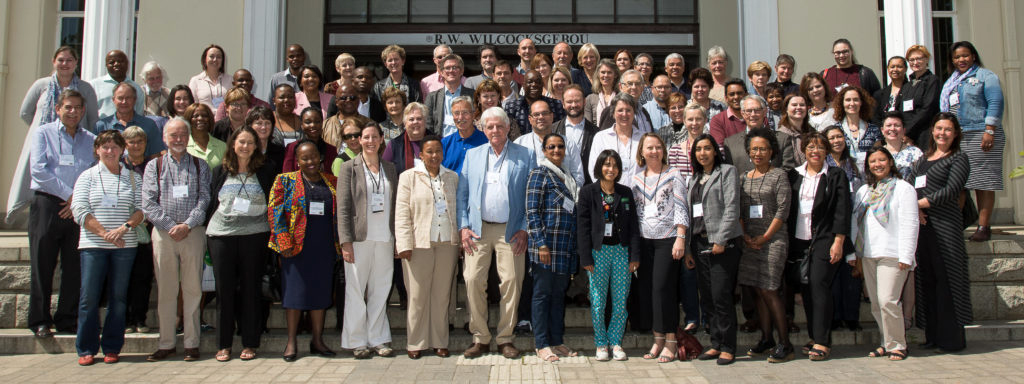News, September 2017
The changing dynamics in scholarly publishing, both globally and in South Africa, present a range of challenges that have multiple implications for scientists’ careers, as well as the autonomy and authority of science. Drawn by a common interest in this topic, about 100 researchers and research managers from across South Africa gathered at the Centre for Research on Evaluation, Science and Technology (CREST) at Stellenbosch University on 28 and 29 September 2017 to reflect on relevant current issues and future perspectives. Some of the hotly debated issues that featured on the conference programme included peer review, open access, digitisation, publishing economics, the burgeoning growth in science publishing and changes in the management of the system of scholarly publishing.
The fact that so many topics are currently discussed is no coincidence, they are all interconnected and a complex mix of role players and factors are involved in the scientific communication system, Professor Peter Weingart, SA Research Chair in Science Communication, noted. Weingart elaborated on the multiple and often competing influences that have become evident in contemporary scholarly publishing. Particularly concerning is that phenomena such as publication bias, manipulation of review processes, plagiarism, scientific fraud and medialisation are undermining trust in published research.
Dr Niels Taubert reflected on the origins of open access, and how the process has been hijacked, at least to some extent, by policy influences. He made a number of recommendations about how science itself could take back control and close the gap between science and policy in scholarly publishing.
Professor Johann Mouton, director at CREST, reflected on growth in scholarly publishing in South Africa over the last 25 years and how this has been influenced by the subsidy system of South Africa’s Department of Higher Education and Training (DHET). He noted that concerns over the quality of scientific outputs and unethical publishing practices have emerged and increased and presented several reasons for concern over the journals where South African academics publish most frequently, including the persistence of questionable publication practices and predatory journals. While he agreed that there are problems that could and should be addressed, he feels strongly that it would be irresponsible to consider a total scrapping of the scientific publishing system in South Africa, since the funding from this system is a lifeline for science in South Africa.
In the afternoon session on day one of the seminar, Prof Weingart reflected on how academic libraries are responding to the changes in scholarly publishing. With the advent of electronic publishing and increased commercialisation of scientific publishing, the traditional functions of libraries have changed fundamentally. In terms of giving academics access to journals and books, libraries are caught in the middle between scientists who rely on this access to the latest information and the sharp increases in the prices charged by publishers. Also, the move from the traditional transcription economy to an open access environment presented libraries with new challenges and implications.
Dr Niels Taubert added his views on the dynamics of the publication market and the roles of publishers in scholarly publishing. He presented different models that journals have adopted to share costs, distribute the work and ensure sustainability.
Susan Veldsman from the Academy of Science of South Africa (ASSAf) introduced day two of the seminar with an overview of a several strategic studies on scholarly publishing commissioned by ASSAf in recent years. She elaborated on how the implementation of recommendations from these reports have impacted on scholarly journals and books in South Africa.
Who pays? This was the key question in a presentation by Professor Keyan Tomaselli of the University of Johannesburg that focused on the research economy at South African universities. He highlighted some contradictions and imbalances in the local scholarly publishing scene, including the oversupply of accredited journals and problems regarding the way researchers are incentivised to publish and journals are funded.
Francois van Schalkwyk from the book publisher African Minds reviewed scholarly academic book publishing in the local higher education sector, and made recommendations for sustained viability of university presses.
In the closing presentation, Marilyn Deegan of King’s College London, presented a number of projects relevant to scholarly publishing, initiated by academic organisations in the UK. This included the ‘Academic Book of the Future’ project, the ‘Academic Book Week’ and the associated ‘Academic Book that Changed the World’ competition. She noted how these projects have ignited public and scholarly interest in a wide range of academic books. Finally, she shared information about an ambitious archiving project in Rwanda currently digitising the transcripts of 40 million pages of information resulting from the legal trials that stemmed from the Rwandan genocide in 1994.



